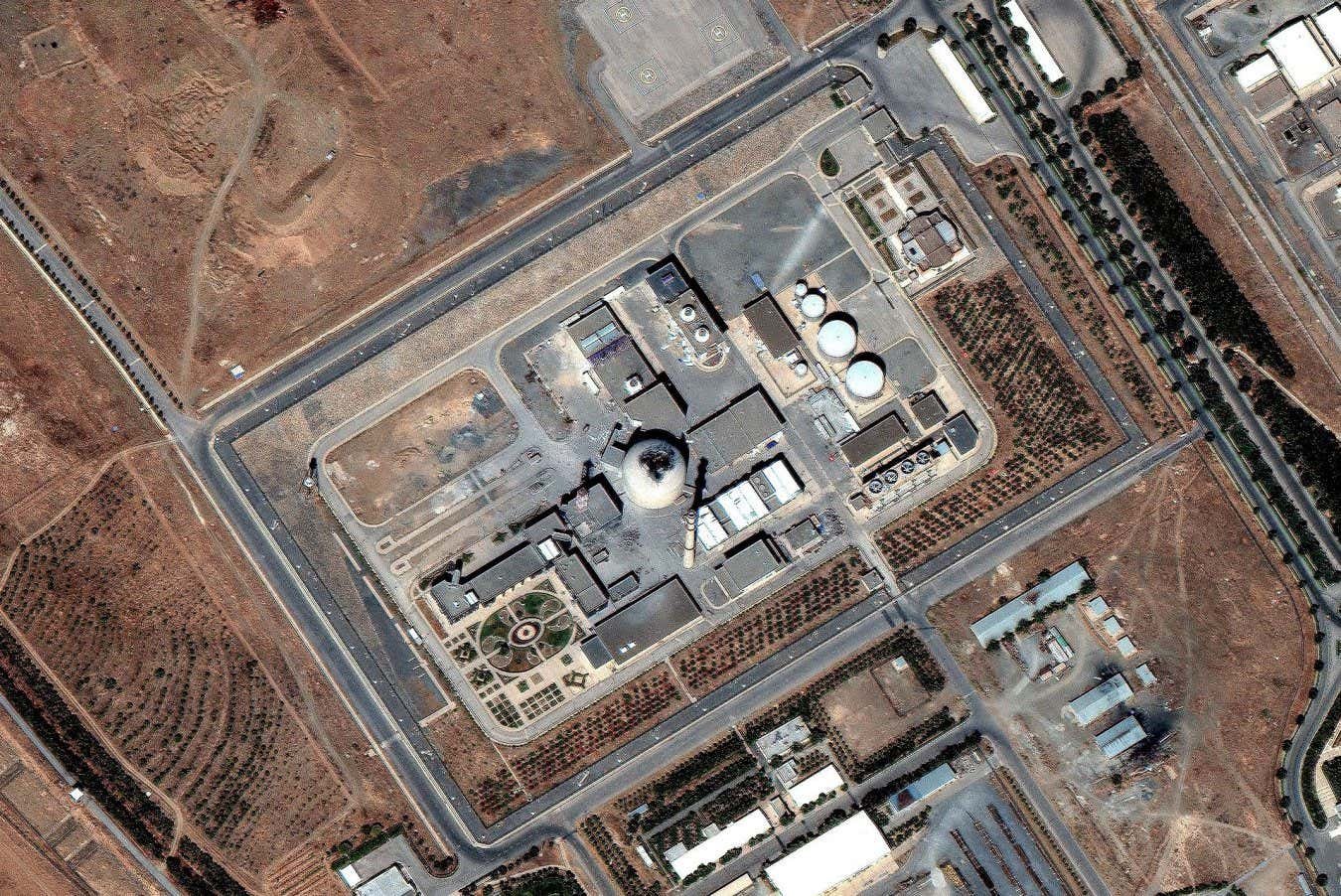Iran’s nuclear plant in Arak was damaged by Israeli bombing
Shutterstock editorial staff
Israeli strikes in Iranian nuclear places are river fear of a malicious radioactive accident included from the Director General of the International Atomic Energy Agency (IAEA) – but experts have told New scientist That the risk is minimal despite reports of radiological and scalp contamination inside a nuclear enrichment facility.
Peter Bryant at the University of Liverpool in Britain says the words “nuclear” and “radiation” create understandable fear, but that there are no external leaks so far despite extensive bombing.
Iran has a nuclear power program dating from the 1950s, and it has also had a nuclear development program at times. The country promised to submit to IAEA inspections to demonstrate that the power facility is not used to build weapons, but earlier this month the Agency released a report, Iran not to fulfill its underpoint rules. Essentially, traces of uranium were found on plants suggesting that a hidden nuclear weapons program continued.
Israel began strikes a few days after the release of the report, against the Iranian facility used to enrich uranium. Of course, this element occurs as a mixture of three isotopes, but the enriched version has a high proportion of one of them, uranium-235, which is useful in both nuclear reactors to generate electricity and for nuclear weapons. Becuse of this potential double use, Iran has promised to limit its enrichment activities at various times and is signing for the Nuclear Weapon Treaty, which means it should not try to create nuclear weapons.
Philipp Bluek at the Middlebury Institute of International Studies in California says that according to IAEA’s report, Iran already has over 400 kg of 60 per day. Hundreds of enriched uranium – which is sufficient in its current form of several raw nuclear weapons – and that Israel’s intelligence agencies believe there is more not -more -not -more. Even 60 pr. A hundred uranium is far more clean, needed for power plant fuel, which suggests that Iran actually has ambitions to become a nuclear power.
Iran has two enrichment sites, Fordow fuel enrichment systems (FFEP) and Natanz nuclear facility. Israel has bombed Natanz, which has led to internal radiation leaks at the plant, according to IAEA, but this seems to have been contained without signs of external leaks.
Fordow, meanwhile, remains in operation because it is so far underground that only powerful American bombs are likely to ruin it. US President Donald Trump is currently emphasizing whether Israel should provide such support.
The Arak -Tongue Hiking Actor has also bombed, but this had never been ordered and contained no radioactive material. Had it been complete, it might be able to convert uranium to plutonium, another matt that may be to make nuclear weapons. The Isfahan Nuclear Technology Center has also been attacked, as well as several missile sites that could launch nuclear weapons once created or launched further conventional weapons attacks on Israel.
Bleek points out that fresh uranium, location of enrichment level, constitutes “very modest” health hazard. “You have to get a lot in your body that uranium miners did when they got uranium dust into their lungs for it to have a meaningful influence,” he says.
Because of this, an enrichment system that is bombed, represents relatively small danger outside the immense area, says Bryant. And because Iran has built them deeply underground – to make destroying them harder – any fallout would be even more contained. “You can keep uranium fuel in your bare hand and it won’t do anything,” says Bryant. “Unless you have to physically eat that uranium, you will not have a result.”
If a functioning nuclear reactor was bombed, however, it is good if its fuel had been in use for months-so there will have been a structure of “ugly fission by-products”-much more danger of radioactive isotopes. If these escaped from a plant, it could create a chernobyl or fukushima scenario, Blek warns.
Bryant says this kind of leakage is almost impossible because reactor design has arrived at the point that they can contain radiation even under heavy bombers. More, power plants are not an important part of a nuclear weapons program and is unlikely to Israel being targeted, he says. Iran’s only operation of nuclear power plant in Bushehr has not yet been targeted.
In spite of scientific experts telling New scientist The fact that the attacks pose minimal risk, IAEA secretary director Rafael Gross said at a press conference earlier this week that actually risks injury – the other such warning he has given in recent years, after Russia’s seizure of nuclear facilities in Ukraine after its invasion of the country.
“I have repeatedly stated that nuclear facilities must never be attacked, gazeless of the context or the circumstances, as it can hurt both people and the environment,” he said.
Topics:
